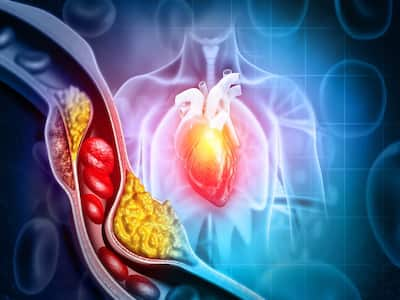
With high cholesterol, a person’s body can develop excessive fatty deposits in the blood vessels, making it difficult for the blood to flow through the arteries.
Cholesterol is the dense, waxy and fatty substance that is found in the blood. Produced by your liver, cholesterol is essential for the making of new cells in the body, and it also performs many other life-sustaining functions. This waxy substance also helps your body make hormones and vitamin D, and it is also found in compounds that your body creates to help you digest food, such as bile.
What is high cholesterol? When the levels of cholesterol in the blood are elevated enough to cause health problems, including heart disease and stroke. The condition can do a lot more harm to your body than you think. From increasing your chances of developing fatal heart problems due to the fatty plaque building up in the arteries to hardening of the arteries, also called atherosclerosis, high cholesterol can invite tons of diseases.
In this article, we take a look at what you need to keep in mind when diagnosed with high cholesterol.
Symptoms of High Cholesterol
High cholesterol doesn’t really come with a particular set of signs and symptoms. This is the reason why this condition is often called ‘silent killer’. However, the below-listed symptoms are associated with high cholesterol, and in case if you notice any of them, make sure to consult with a doctor at the earliest.
- Nausea
- Numbness
- Slurred speech
- Extreme fatigue
- Chest pain or angina
- Shortness of breath
- Numbness or coldness in extremities
- High blood pressure
How To Manage Cholesterol?
Now that you know how cholesterol can affect your body, here are some easy home remedies to keep the condition under control:
Add exercises to your daily routine
It is important to keep your weight under check when diagnosed with high cholesterol. As per experts, to stay healthy and keep the heart happy, an adult should indulge in at least 150 minutes of moderate-intensity exercise per week, or 75 minutes when engaging in more vigorous physical activity, like weight lifting, running on the treadmill, or jogging.
READ RELATED: The Absolute Best Way To Cook Steak on the Grill, According To Culinary Experts
Eat a Healthy Diet
It is important to follow a clean and healthy diet at all costs. When suffering from high cholesterol, it is advisable to eat a diet low in saturated and trans fat and high in fiber and unsaturated fats.
Quit Smoking
Smoking not only affects your lungs but can also increase your chances of developing high cholesterol levels. When you smoke, the tobacco can damage blood vessels and lower HDL cholesterol, both of which can contribute to severe heart problems.
Check Your Weight
Understand the connection between weight gain and high cholesterol. A person with a normal BMI is at a lower risk of developing severe consequences of high cholesterol than one who is overweight or obese. Excess body fat can effectively slow down your ability to remove LDL cholesterol from the blood, thus increasing your chances of suffering a heart attack and stroke.
Limit Your Alcohol Intake
Excess alcohol intake can raise cholesterol and triglyceride levels in the blood. According to the experts drinking alcohol can increase the chances of plaque formation inside the arteries and cause heart attack and stroke.
Total Wellness is now just a click away.
Follow us on
window.addEventListener(‘load’, (event) => {
// $(document).ready(function(){
$(‘#commentbtn’).on(“click”,function(){
(function(d, s, id) { var js, fjs = d.getElementsByTagName(s)[0]; if (d.getElementById(id)) return; js = d.createElement(s); js.id = id; js.src = “//connect.facebook.net/en_US/sdk.js#xfbml=1&version=v2.3”; fjs.parentNode.insertBefore(js, fjs);}(document, ‘script’, ‘facebook-jssdk’));
$(“.cmntbox”).toggle();
});
// });
});





